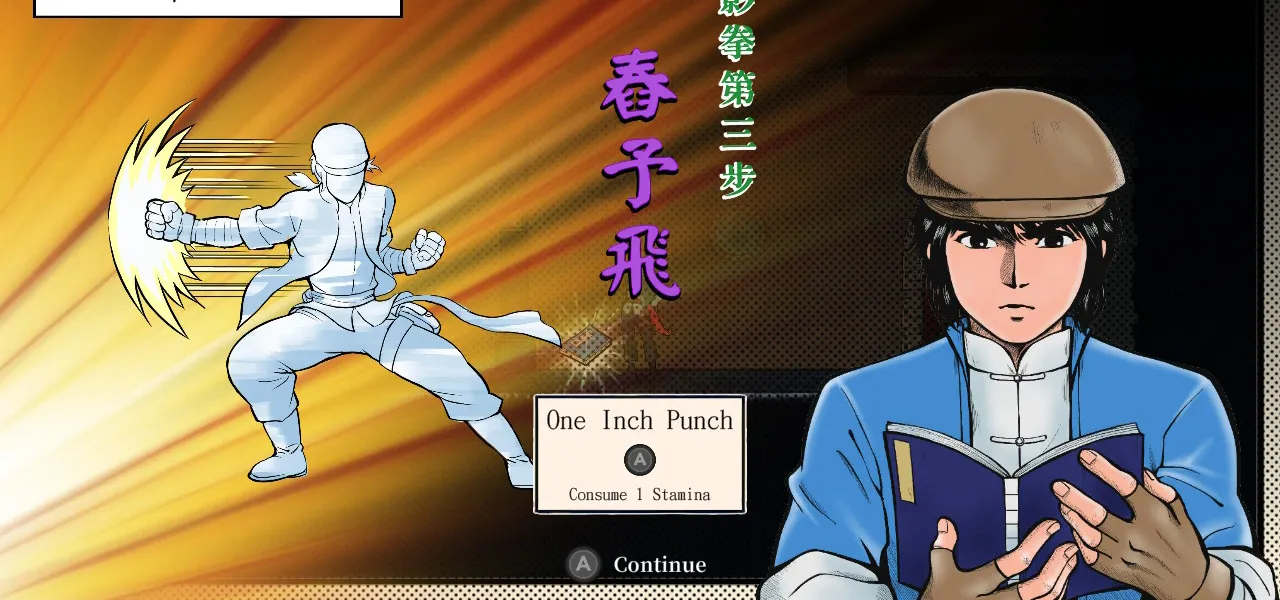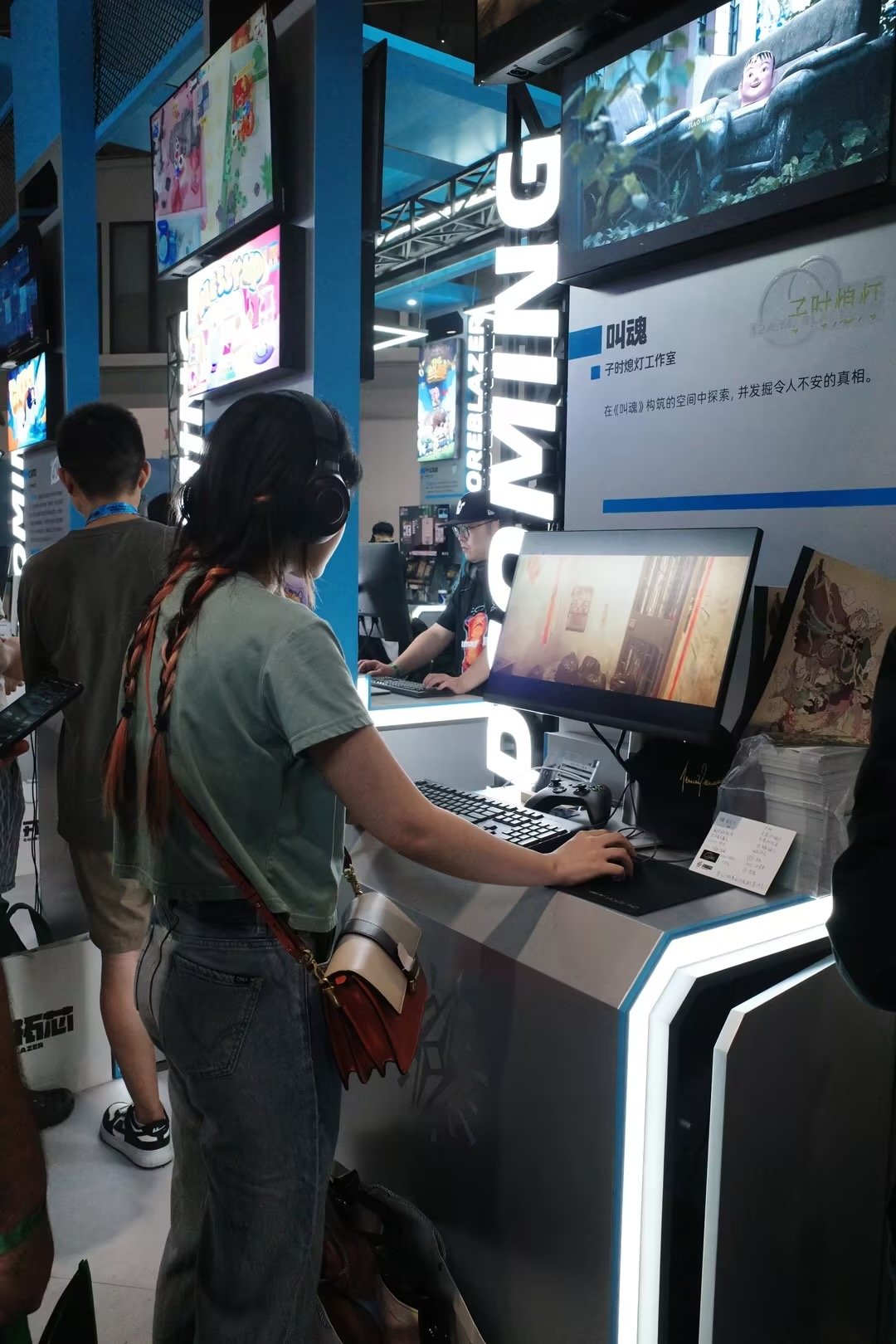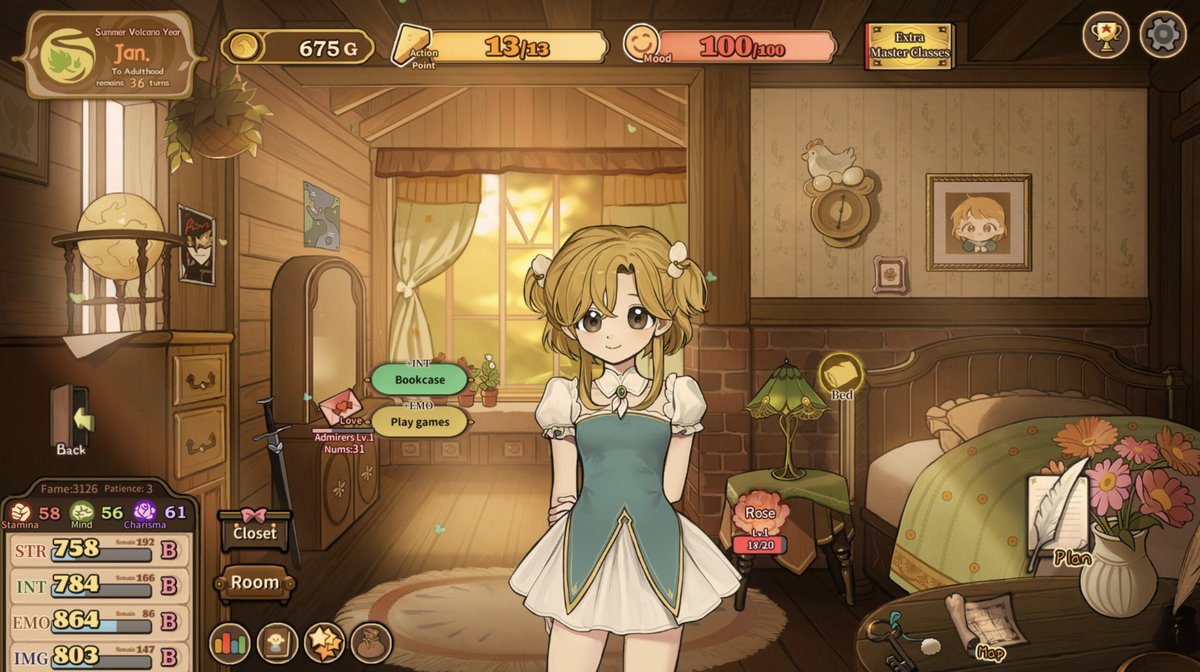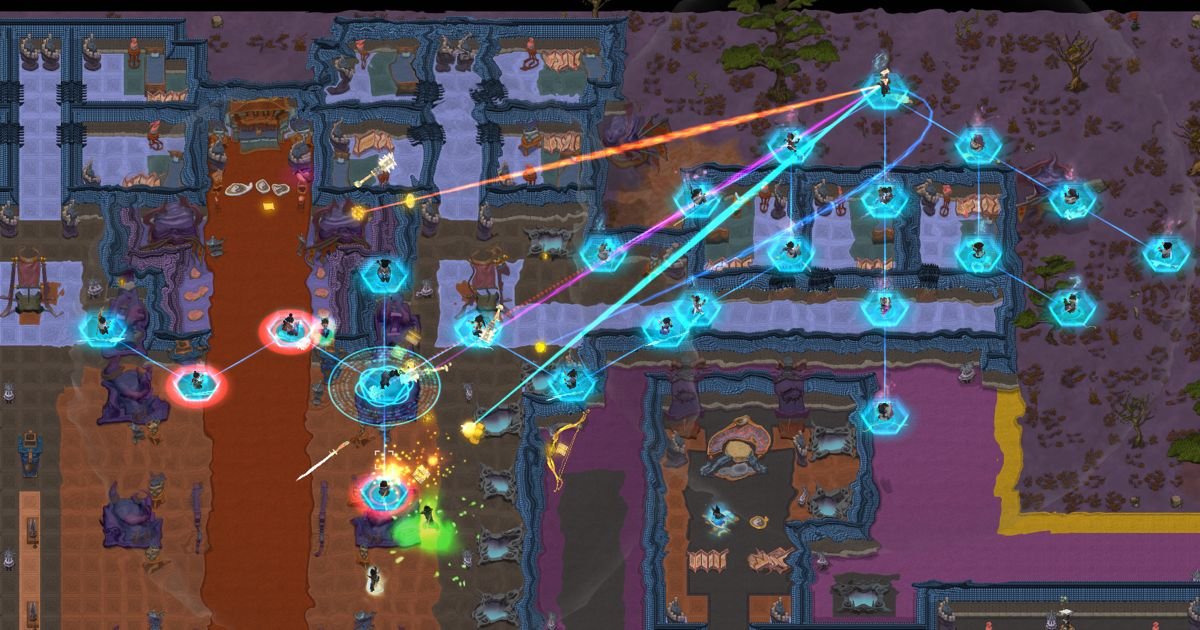Chinese game developers hoping to dodge bureaucracy and make profits abroad still face problems with localization
Despite passing through the 18 layers of Buddhist hell, conference-goers at the GCORES gaming convention in Beijing seem excited. “It reminds me of Resident Evil,” one pink-haired gamer cosplaying an anime character exclaims, referencing a pioneering Japanese game series, after demoing the Chinese horror title Summoning Spirits.
But Summoning Spirits, which takes players on a journey through a world of riddle-solving mystery and malevolent spirits, will never be officially published in China. Instead, it and dozens of other domestically-made games on display at the convention in September this year will go straight to international distribution platforms like Steam where they can avoid China’s lengthy licensing procedures and content restrictions.
To reach their potential in international markets and turn a profit, though, developers face significant hurdles in localizing their content to foreign tastes.
Big market, big restrictions
China’s gaming market has grown rapidly over the last two decades. Now, almost 700 million people in China play games, while revenue from the gaming industry stood at 36 billion US dollars in 2022.
During the pandemic, gaming became even more popular, with domestically produced titles faring better than ever. Revenue for Chinese-made games rose from 6.4 billion yuan in 2020 to 27.9 billion in 2021. “This was truly the year everything blew up,” Chinese video game media outlet GameRes declared in January 2022, referring to the previous year.
The most successful games are free-to-play mobile titles released by gaming giants Tencent and NetEase and published on domestic platforms like TapTap. Tencent’s multiplayer battle arena game Honor of Kings, for example, has over 100 million daily players.
But Chinese games on Steam are booming too. In the first half of 2023 alone, close to 600 Chinese games were released on the US-based game distribution platform, compared to around 700 in the whole of the last year. Roleplaying game Volcano Princess, released in April this year by Gamera Games (a Shanghai-based studio that released a whopping 19 games on Steam last year), racked up 600,000 sales in just three months. In early 2021, the wuxia-themed game Tale of Immortal by Ghost Valley Studio made headlines after it rocketed to being the fifth most-played game on Steam just a week after its release.
Fei Taiyang, a game developer from Yunnan province who had a booth at GCORES, tells TWOC he intends to release his text-based PC game S4U only via Steam. The 23-year-old’s game, which he took months to develop as part of a team of three, has players navigating complex online chat interactions with clients, helping them to, for example, confront workplace harassers.
According to Fei, Steam provides respite from regulations. “For small companies, the game license review is very lengthy and challenging,” he tells TWOC.
In China, games need to obtain official approval from the National Press and Publication Administration (NPPA) in the form of a game license—called banhao (版号)—before they can be published on official platforms for the domestic market. Profanity, nudity, politically sensitive topics, or even supernatural themes can prevent a game from obtaining a license.
To submit a game to the NPPA, developers need to go through a registered publisher and pay a review fee of around 30,000 to 40,000 yuan. The review can take a year or longer, at the end of which a game may not pass and developers could be required to make substantial changes to an otherwise finalized product. For financially constrained developers, months or years of game development being denied a license a year from submitting the playable demo is potentially ruinous.
Games can sometimes fail to pass for nebulous reasons. “I was once told during a game license review that we were not allowed to prominently use the color red in our game,” Fei claims, reasoning that the color is associated with blood and violence.
Other regulations can provide even more hurdles. For example, in 2021 and 2022 authorities imposed a months-long freeze on new games during which the NPPA stopped issuing any licenses.
Shades of gray
Steam has therefore become the only viable alternative for many games to get published. The platform, which has over 120 million users worldwide, operates in a gray area outside of the NPPA’s licensing regime. Though certain community functions like user profile pages have been blocked in China since 2017, domestic gamers can still access the platform to search and download games, and developers can easily release their games there.
But with just 10 million registered Chinese users on Steam (compared with 30 million active monthly users on TapTap, one of China’s most popular video game platforms), developers must look to foreign markets to maximize their exposure. “We’re looking to bring [S4U] to both English and Japanese gamers,” Fei tells TWOC. Those languages are popular for Chinese developers looking to sell abroad, mainly because of the large gaming markets in North America and Japan. Out of the 15 most successful Chinese games released on Steam in the first half of 2023, 14 are available in English, four in Japanese (including the best-seller Volcano Princess), and three in other languages like French and German.
Tang Xiong, a 24-year-old developer from Sichuan province, has also decided to publish his game Kill the Shadow directly on Steam, mainly to avoid the licensing process. Minutes into Tang’s side-scrolling adventure game, which he developed with his high school classmates, the protagonist, a former police officer who believes he can change the past with the help of a mysterious shadow, starts cussing.
“The profanity creates a certain atmosphere and makes the world realistic…It was designed with the story context in mind and also serves to bring the characters to life,” Tang says, explaining why he didn’t just edit out the swearing to make the game more palatable to China’s regulators.
“It’s unlikely we’ll be able to publish this in China,” he says. Instead, “We’ll finish the localization first and then publish the game.” By translating the game into English and releasing it via Steam, he hopes to reach a wider audience while maintaining the game’s essence.
Going local
However, adapting games for foreign markets can be complex. “Localization is an extension of mere translation,” Zeng Shumian, project manager at game localization company Neon Doctrine, tells TWOC, emphasizing the depth and intricacy of preparing games for foreign audiences. His stall at the GCORES convention is swarmed by young developers and publishers eager to understand how to successfully adapt their Chinese games for foreign markets.
“The Legend of Tianding was one of the more complicated ones [to localize],” Zeng says, referencing a game his company localized about Liao Tianding, a folk hero who resisted Japanese colonists in the streets of early 20th century Taipei.
The award-winning game, available in English, Japanese, French, and other languages, has 95 percent positive reviews on Steam, with many praising the novel (to non-Chinese players, that is) setting: “This game really sets itself apart by giving us a historical setting that is almost unexplored in gaming,” writes one reviewer. But the Republican era setting also provided challenges to Zeng’s localization efforts. A popular Chinese card game called Four Colors (四色牌) that appears in the game, for example, is basically unknown in the English-speaking world. “We had to localize it so that foreign gamers could understand the game, including changing the card faces to something they would understand,” Zeng says.
“A lot of the games that Chinese game companies make for their own market are drawing from cultural ideas or references that can be hard to express or explain to a foreign audience,” Joshua Ogden-Davies, a Chinese-to-English video game localization consultant, told the Middle Earth Podcast in March 2022.
For example, Ogden-Davies explained that switching between classical and modern Chinese language is common in many Chinese games set in the Three Kingdoms period (220 – 280), which is difficult to transfer over to English. Likewise, references to historical figures or military ranks that are part of the popular culture in China may need to be explained to non-Chinese audiences, but this can make games feel bloated with explanatory text or dialogue.
Though Tang’s Kill the Shadow game doesn’t include many references to ancient Chinese history or mythology, he is still “trying to not put too much information essential to progressing through the game into the art of the game, because changing the art to make it work for foreign gamers is what’s most expensive.”
While simple translation of a game can be inexpensive, “If the game requires extensive localization…it can be over 20 percent of the whole budget,” says Zeng, referring to adaptations of concepts and characters unfamiliar abroad.
Skimping on localization can cause confusion, however. Breakout 13, a Chinese game released in January this year that tasks players with escaping from a shady internet addiction treatment center, has received over 5,000 reviews on Steam, with 87 percent positive. But it’s not perfect: “I had to search for a clue on the internet on how to write Chinese date format because you will need to use a password at some point and if you don’t know that Chinese date format is written as year/month/day you will waste lots of time there,” complained one reviewer on Steam.
Some games require more than translation and even in-game explanations. Amazing Cultivation Simulator, released directly on Steam by Shanghai-based Gamera Games in 2019, has a Discord server run by the developers for players unfamiliar with Chinese culture to discuss the game and query topics like feng shui, Daoism, and Chinese mythology that feature heavily on screen.
The resource-management game, where players establish a magical sect and cultivate disciples, also includes extensive tutorials explaining concepts like qi. “I understood feng shui so wrong when I started out with the game,” one German game reviewer on YouTube told his audience in 2020, detailing how he initially failed to understand that in-game feng shui mechanics were tied to features of the environment—something that would be obvious to many Chinese players already familiar with feng shui concepts in real life. The game has 88 percent positive reviews on Steam.
In Kill the Shadow, Tang is still struggling with how to adapt certain parts of the game world to foreign audiences. Some content, like the huge red banners with government slogans featured in the background of his game (and are ubiquitous across real-life China), may just have to be deleted. “These banners…are not really essential to the narrative, they just make the experience more immersive, the world more believable for the player. But because they’re not essential to the gameplay, taking them out in the localized version won’t have much of an effect,” Tang says.
Even with these hurdles to negotiate, Tang and other small-time developers are still convinced that their prospects are brighter if they release their games on Steam and market them to overseas players rather than try to get licensed for official release in China. In fact, with domestic game regulations restricting swearing, excessive violence, and some supernatural elements, this may be the only way Chinese developers could ever produce their own Resident Evil.















